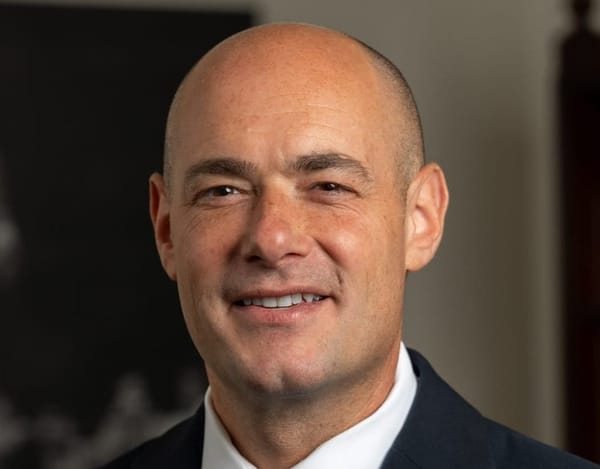FCC Imposes $10,000 Fine on ISP for False Broadband Claims
A leaked email from a company exec revealed that the false data was a deliberate attempt to prevent competitors from accessing government grants earmarked for broadband expansion in the region.
Jericho Casper

WASHINGTON, March 28, 2024 – An internet service provider has been fined $10,000 for lying to the Federal Communications Commission about where it offers broadband service in an effort to block its competitors from receiving government grants.
Jefferson County Cable, based in Toronto, Ohio, admitted to making false claims of providing fiber service in locations that it had not yet expanded to. A company executive also confessed to submitting the inaccurate coverage data to prevent other ISPs from obtaining federal and state subsidies to serve the region.

The FCC disclosed the investigation’s findings on March 15. According to the settlement, Jefferson Cable Company breached the mandates of the Broadband Data Collection program and the Broadband DATA Act, which requires ISPs to biannually report the availability and quality of their broadband internet access service. The law prohibits any entity from knowingly or negligently submitting inaccurate broadband internet access data.
"To settle this matter, Jefferson County Cable agrees to pay a $10,000 civil penalty to the United States Treasury," the FCC said. "Jefferson County Cable also agrees to implement enhanced compliance measures. This action will help further the commission's efforts to bridge the digital divide by having accurate data of locations where broadband service is available."
The company’s false claim came to light thanks to Ryan Grewell, who runs the ISP Smart Way Communications, reports ArsTechnica. Grewell heard about the false claims from his own customers and used the FCC's map system to file challenges at specific addresses.
One of Grewell's challenges at an address in Bergholz, Ohio, led the cable company to admit to its false claims.
Grewell received an email from Jefferson County Cable executive Bob Loveridge who thought Grewell was a potential customer, not a competitor. The email said that Jefferson County Cable didn't serve the area yet, but wanted to prevent potential competitors from getting deployment grants.
"You challenged that we do not have service at your residence and indeed we don't today," the January 2023 email from Loveridge said, reports ArsTechnica. "With our huge investment in upgrading our service to provide xgpon we reported to the Broadband Data Collection that we have service at your residence so that they would not allocate broadband expansion money over top of our private investment in our plant."

The FCC order said that Jefferson County Cable initially reported serving 8,178 addresses for the commission's data collection as of June 30, 2022. The company then decreased this count to 6,605 addresses in the subsequent data collection round on December 31, 2022.
Even the revised lower figure exceeded Jefferson County Cable's actual coverage. Following a letter from the FCC Enforcement Bureau in March 2023, the FCC order stated that "Jefferson County Cable corrected its inaccurate submissions for both data filings by removing these approximately 1,500 locations from each of the relevant data filings on May 19, 2023.”
"At that time, the company could not provide broadband service at or connect those locations within 10 business days of a request for service, as required by the Broadband Data Collection Rules," the FCC said. "Jefferson County Cable acknowledged to the Bureau that it had not taken the necessary time and effort to review and understand the commission's guidance on Broadband Data Collection filings before it made these two filings."
This occurrence highlights the legitimacy of concerns being raised regarding the FCC mapping data, which will be used to determine which areas are eligible for deployment grants under the Broadband Equity Access and Deployment program.
Only areas that are considered to be un- or underserved on the FCC’s map will be able to access a portion of the $42.5 billion allocated for broadband infrastructure under BEAD.
The responsibility to correct the FCC map has fallen on the shoulders of local and tribal governments, as well as nonprofits, instead of private internet service providers. However, these eligible challengers have not received grants or resources that are essential to hire professionals to address challenges submitted to the FCC's national broadband map, state broadband officials said during a recent Broadband Breakfast Live Event.
Local and state officials cite that insufficient funding and a shortage of staff resources have made it increasingly difficult to involve local governments in the process of correcting inaccuracies in the mapping fabric, as well as guaranteeing the submission of accurate information required for their challenges to be considered.
Local governments fear that inaccuracies and overreporting of broadband coverage on the FCC map may render their communities ineligible for BEAD funds. For instance, the FCC’s map shows that Le Sueur County, Minnesota is almost entirely served with broadband, when county officials estimate nearly 75 percent of the county lacks reliable internet access.
BroadbandNow released data Tuesday showing federal broadband availability coverage is overstated in all 50 U.S. states.
The FCC has been striving to correct its national broadband coverage map, which has been recognized to contain inaccuracies as the coverage data has traditionally been self-reported by ISPs. Recent versions of the map show improvement, with the FCC estimating just over 7.2 million locations lacking access to high-speed internet service, down from 8.3 million in previous iterations.
While the FCC maintains support for its challenge process, Grewell voiced discontent with the FCC's approach. "Consider that the only reason this provider was caught is due to inquiries from individuals like myself," Grewell said, reports ArsTechnica. "It's unrealistic to expect that there will always be someone to raise questions in every case. The average citizen is unlikely to scrutinize the FCC's broadband map for inaccuracies. This begs the question: how many others might be exploiting the system to safeguard their own interests?"
The National Telecommunications and Information Administration, which oversees the BEAD program, had previously considered putting the burden-of-proof on ISPs. But, ultimately decided against it.
As for Jefferson County Cable, the FCC ordered the company to implement "internal procedures and policies specifically designed" to ensure compliance, and conduct annual compliance training with employees. The company will have to file a compliance report with the FCC within 90 days and submit annual reports for two years.
Jefferson County Cable is required to self-report any future instances of noncompliance, with an explanation of what happened and the steps it's taking to prevent repeats. The requirements are set to expire in 24 months, but could be extended another 12 months if the company doesn't fully comply.









Member discussion